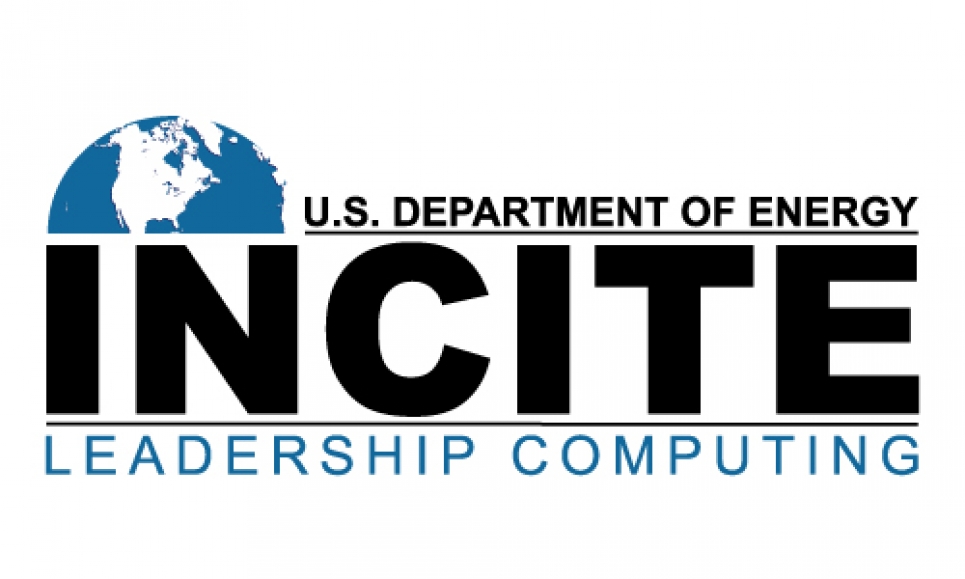
INCITE program awards supercomputing time to 81 high-impact projects
With access to supercomputers at ALCF and OLCF, the projects will pursue computationally intensive research campaigns in areas ranging from drug discovery to cosmology to large language models for science.
The U.S. Department of Energy’s Office of Science has allocated supercomputer access to 81 computational science projects for 2025 through its Innovative and Novel Computational Impact on Theory and Experiment, or INCITE, program. DOE is awarding 60% of the available time on the leadership-class supercomputers at DOE’s Argonne and Oak Ridge national laboratories to accelerate discovery and innovation.
The program will support a broad range of high-impact, computationally intensive research campaigns in a vast array of science, engineering and computer science domains.
Jointly managed by the Argonne Leadership Computing Facility (ALCF) and the Oak Ridge Leadership Computing Facility (OLCF), the INCITE program is the primary means by which the facilities fulfill their mission to advance computational science by providing the scientific community with access to their powerful supercomputing resources. The ALCF and OLCF are DOE Office of Science user facilities.
The ALCF’s resources include Aurora, an Intel-HPE Cray EX supercomputer recognized as the world’s fastest AI machine and the second DOE system to break the exascale barrier. Additionally, ALCF is awarding time on Polaris, an HPE Apollo 6500 Gen10+ system that delivers 44 petaflops of Tensor Core FP64 performance. The OLCF’s system is the 2 exaflops peak Frontier, an HPE Cray EX supercomputer that debuted in May 2022 as the world’s fastest supercomputer.
"These bold research initiatives are driven by the immense power and scale of our leadership-class computing systems," said Arjun Shankar, director of the National Center for Computational Sciences, which houses the OLCF. "The DOE’s INCITE program enables researchers to push the limits of computational capability, accelerating scientific breakthroughs. We’re proud that INCITE can support the most challenging research campaigns and truly game-changing exascale-class projects."
Open to any researcher or research organization in the world with a computationally intensive project, INCITE’s application process is highly competitive. Over a four-month period, INCITE proposals are assessed by peer-review panels composed of international experts, with each panel representing a different scientific discipline. The proposals are also evaluated on a technical level by each computing facility for computational readiness and the scalability of the project’s code and algorithms. The INCITE awards committee makes its final selections based on these recommendations. This year, the committee received – total proposals with researchers requesting more than – million node-hours across all three systems. Additionally, the INCITE committee commits 10% of allocatable time to an early career track aimed at researchers within 10 years from earning their doctorate. This year, 13 early career projects were awarded.
“INCITE allocations give us a good sense of where scientific computing is headed,” said Michael Papka, director of the ALCF. “By opening up access to some of the world’s most powerful supercomputers, we’re helping researchers tackle big challenges with large-scale simulations, AI, and data analysis—paving the way for discoveries across all sorts of science and engineering fields.”
Highlights of the 2025 allocations include:
- Drummond Fielding of Cornell University received 600,000 node-hours on Frontier to advance the study of cosmic ray transport in interstellar turbulence.
- Nicholas Frontiere of Argonne National Laboratory received 1,000,000 node-hours on Aurora and 50,000 node-hours on Polaris to probe the primordial universe with exascale simulations.
- Anurag Verma of Corporal Michael J. Crescenz VA Medical Center received 500,000 node-hours on Frontier to enhance genomic discoveries with GPU-accelerated computing.
- Ivaylo Ivanov of Georgia State University received 400,000 node-hours on Frontier to advance computational modeling of molecular machines in gene regulation and DNA repair.
- Giuseppe Barca of the University of Melbourne received 380,000 node-hours on Frontier to perform exascale quantum-AI molecular dynamics simulations for covalent drug discovery.
- Darrin York of Rutgers University received 300,000 node-hours on Polaris to develop a framework for high-throughput lead optimization to advance computer-aided drug discovery.
- Peter Caldwell of Lawrence Livermore National Laboratory received 1,000,000 node-hours on Frontier and 1,000,000 node-hours on Aurora to provide real-world climate predictions using the SCREAM atmosphere model.
- Jonathan MacArt of the University of Notre Dame received 1,000,000 node-hours on Frontier to carry out deep learning wall-modeled large eddy simulations for aerodynamics and wind energy.
- Eric Nielsen of NASA Langley Research Center received 500,000 node-hours on Aurora to use exascale computing to gain new insights into high-lift ground testing.
- Janet Scheel of Occidental College received 750,000 node-hours on Aurora and 50,000 node-hours on Polaris to conduct exascale simulations of Rayleigh-Benard convection.
- Rick Stevens of Argonne National Laboratory received 770,000 node-hours on Aurora and 150,000 node-hours on Polaris to advance science using a large-scale foundation model, AuroraGPT.
- Vyacheslav Bryantsev of Oak Ridge National Laboratory received 780,000 node-hours on Frontier to develop trustworthy and scalable AI-driven modeling of molten salts.
- Chris Wolverton of Northwestern University received 150,000 node-hours on Polaris to perform high-throughput calculations of materials properties at finite temperature.
For details on all of the 2025 INCITE awardees, view the project fact sheets
